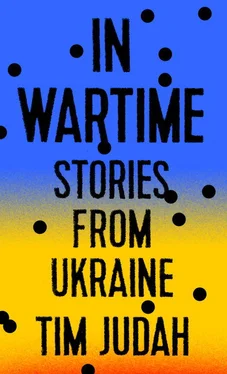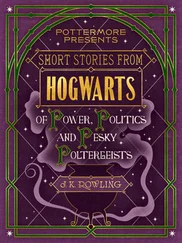The road from Izmail to Vilkovo is pockmarked with craters. There has been no war here but the word “potholes” simply does not do them justice. Later I learned two things. A politician in Odessa, which is the capital of the whole oblast or region of which Bessarabia is a large part, told me two things about the road. When I asked him why it was so bad his first reaction was that it did not actually matter because, as it was not a big main road, “only locals use it.” Then he told me that it had in fact been repaired a couple of years ago. The problem was, of course, corruption. Roads are notorious the world over for providing an easy opportunity to skim off extra profit. You are contracted to lay asphalt with a certain thickness, which you say you do, but you do not, pocketing the cash for the materials not bought or sharing it with whoever secured you the contract. The problem for those who use the road is that the surface quickly deteriorates, as it is not thick enough—just as it has here. Then a maintenance crew can go out to resurface it once again and more money can be shared between those in on the deal.
Vilkovo is known as a town of Old Believers, descendants of people who refused to accept the reforms of the Russian Orthodox Church in the seventeenth century and who scattered to the farthest, most isolated corners of the empire and beyond to avoid persecution. Today they make up some 70 percent of Vilkovo’s population. They settled here along with Don Cossacks also in flight, in the marshy delta of the Danube, and in this region and in Romania they are called Lipovans. The town, founded in 1746, is crisscrossed with canals and some have dubbed it optimistically the Ukrainian Venice. Along some of the canals people teeter on narrow boardwalks and tiny rickety wooden bridges as they go about their business. Houses have little jetties in front, to which their owners’ boats are tied. In the center of town is a Soviet-era fisherman monument and the main, turquoise-painted Old Believer church. From Vilkovo this branch of the Danube, known as the Kilia branch, forks out into several smaller ones, which then flow out into the sea. This is how Vilkovo got its name—it derives from the word for “fork.”
Misha Zhmud, aged fifty-seven, is a local councillor, scientist and entrepreneur. He has built a small village of vacation houses on the river, called Pelican City, from where you can set out to explore the Danube, its birds and the Ukrainian portion of the delta, the greater part of which is in Romania. As dusk fell we sat in his little office and I scribbled by candlelight because the power was off again. Twenty years ago, he said, some 14,000 lived in Vilkovo and there was work for 7,500. Now there are only 2,000 jobs and 7,500 people. “The population is disappearing,” said Misha. In terms of work Vilkovo had gone back sixty years, and “if we don’t create three hundred or four hundred jobs here then Vilkovo will turn into a village very quickly.” A lot of local men, who have a tradition of seafaring here, have gotten good jobs as sailors on foreign ships and send money home. They can earn €5,000 to €7,000 a month when they are abroad, which is huge for Ukraine, but even this influx of cash for some lucky families is not enough to stem the exodus of those who remain.
There were some big employers here in Soviet times. One was a fish-canning factory employing 1,300, which has gone, and the others were in fishing, the port and a shipyard. From here ships could sail up and down the Danube, but corruption and neglect led to the collapse of the industry. The coups de grâce were the Yugoslav wars. First, sanctions on Serbia led to a drop in business and finally, during the 1999 Kosovo war when NATO bombed Serbia, bridges were downed into the river, halting traffic. By the time it was cleared there was no more business, at least for Ukraine.
Today, far more traffic flows up and down the main Romanian Sulina branch of the Danube, which, says Misha pointedly, “is in the EU,” while here, once navigable parts have silted up. Tourism has created some 300 jobs but many of these are seasonal and, as it is so hard to get to Vilkovo, it has not flourished as it should. The war is hundreds of kilometers away but foreigners see that Vilkovo is in Ukraine and numbers have fallen off dramatically. Meanwhile, as the hryvnia’s value has slumped, costs have soared. Misha also produces and exports honey and reed used for thatch. The problem is that the Chinese are among his greatest competitors in both fields and the Chinese have launched dirty disinformation campaigns to discredit Ukrainian honey. He is happy that after the Maidan revolution Ukraine finally signed a trade deal with the EU, but complained that its honey quota was far too small. One consequence of that he lamented would be the continuation of a problem they already had before the deal, i.e., honey smuggling. This meant that Ukrainian honey ended up packaged and sold as German honey. “And it is the same with reeds.” On a positive note, that day he had a meeting with partners from EU countries about using reed as a biomass energy source.
The result of the drama of the last twenty-three years and the sheer difficulty of surviving here have left at least some of the older generations in Vilkovo “sympathetic” to Russia, “as they want a strong government,” Misha said. Ever since independence Ukrainian governments had been simply incapable and none had done anything for Vilkovo. But of those who look to Russia, while they know their own difficult situation, the problem is that there are “two Russias.” They see St. Petersburg and Moscow, which are one, but do not see the other, the rest of the country where “their standard of living is even worse than here.” Sympathy for Russia seems a vague and not very passionate force, however. In Misha’s view most people here are apolitical; if called up to serve in the Ukrainian army they would do so, but equally “they would serve the other side the same.”
Misha always supported pro-European parties, but now, although he and his friends were the local partisans of the Maidan revolution, he cannot understand what President Poroshenko and Prime Minister Arseniy Yatseniuk are doing. They can’t even open legal cases for corruption against Yanukovych and his cronies. “This sleepy regime needs to be woken up!”
The next day Misha’s son Alexei, who is thirty-two, took me on a speedboat down to the sea. It was cold, clear and bright. He thought that politically people here were divided along generational lines. “Now we have children who are pro-Ukrainian and parents who are pro-Russian.” But the younger generation are disappearing because of the lack of work. Of his school class of thirty students only five remained in Vilkovo.
We saw reedbeds, stacks of cut and bundled reed ready to go and the odd fisherman. We passed a derelict Soviet communications-cum-watchtower. As we went by an island Alexei said seventy families used to live there but now there were only ten. There is no electricity and people scrape along by fishing, growing their own vegetables and selling food to vacationers. I asked Alexei if, since this place is so isolated, there was much smuggling here, but he said there was not, because on the Romanian side of the river there were hardly any people, as “it is even worse than here.” Some of the old houses on the riverbank and islands have been bought by people from Odessa as vacation homes, and some new ones have been built, but, said Alexei, they don’t do them up nicely because they don’t want to draw attention to them. This is either because of thieves or because the law is such a mess of contradictions that most of them exist in a legal limbo and, until the rules have been reformed and clarified, people cannot legalize their properties here.
Читать дальше












